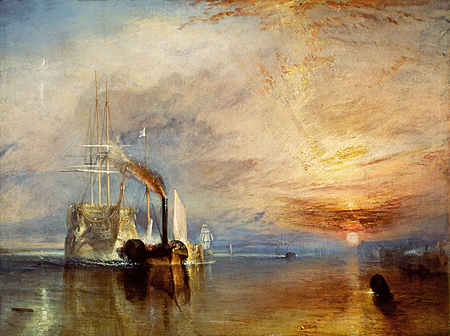
Hallowe'en, and I have no stories about ghouls or ghosts or vampires. Instead, I will tell you the legend behind the Long Man of Wilmington. The Long Man is a figure cut into the steep, north-facing slope of the South Downs a few miles from Brighton. He measures some 230 feet from head to toe, making him the second largest chalk figure in the world. His origin is unknown, but Sussex being Sussex, there is a legend.
In days gone by, before even our great-grandfathers' great-grandfathers were born, there were two giants living in Sussex, one on each of two hills on the South Downs. No-one knows what names the hills had in those distant days, but nowadays they are called Mount Harry and Firle Beacon, probably because the giants who lived on those hills were called Harry and Firle.
Every morning, Harry would look towards the east as the sun came up. On seeing Firle, he would call out and the two of them would discuss their plans for the day, the prospects for the weather and so on. In the evening, Firle would look westwards towards the setting sun and would call out to Harry. They would tell each other about how their plans for the day had turned out and chat generally as the sky darkened from the east.
Now it came about that the two quarrelled. What the quarrel was about, nobody knows, but neighbours being neighbours, it was probably over something quite petty. Harry and Firle no longer told each other their plans, nor did they discuss how their crops were doing, nor about the chances of rain in the morning. Instead, they hurled insults at each other. Then one day, Firle throw a lump of earth at Harry. Harry responded by throwing a large lump of chalk. This hit Firle on the temple and he fell down, dead on the instant.
Harry was immediately full of remorse and rushed across the valley. There was nothing he could do: even giants can't be brought back from the dead. Harry decided he would have to bury Firle. But Firle had been standing on Windover Hill at the time and Harry couldn't face carrying him back to Firle Beacon, so he decided to bury him where he lay. He thought of erecting a headstone, but chalk - the local rock - is quite unsuitable for headstones. Instead, Harry dug round the outline of Firle's body, his two staffs included, through the shallow topsoil to the white chalk beneath so that all who passed by could see and remember the giant Firle. Harry left Sussex after that, never to be seen again, but his memorial to Firle can be seen to this day on the slope of the Downs above the village of Wilmington.











.JPG)










